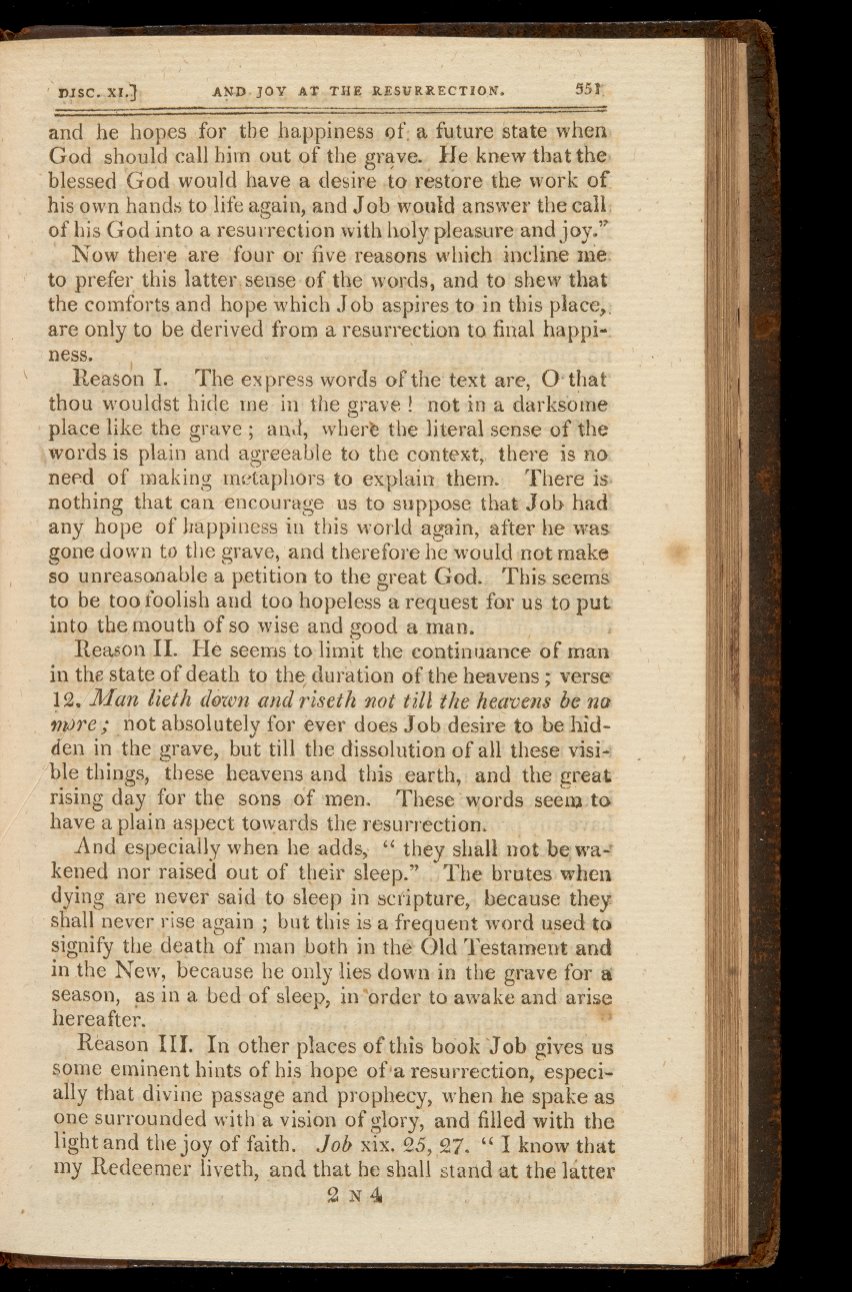

DISC.
xr.]
AND. JOY AT THE
RESURRECTION.
551
and
he
hopes for the happiness
of,
a
future
'state
when
God should
call him
out
of
the grave.
He
knew
that
the
blessed
God
would have a
desire to
restore the
work
of
his own
hands
to life again, and
Job
would
answer the call
of
his
God
into
a resurrection
with holy
pleasure and
joy."
Now there
are 'four
or
five
reasons
which
incline
Hie
.
to
prefer,
this
latter.sense of
the
words, and to
shew
that
the comforts and hope
which
Job
aspires
to
in
this place,,
are only
to
be
derived from
a
resurrection to
final
happi
-.
ness.
Reason I. The
express
words
of
the
text
are,
O.
that
thou wouldst
hide
me in
the grave
!
not
in
a
darksolne
place
like
the
grave
;
ant,
where
the literal
sense
of
the
words
is
plain and
agreeable to the context; there
is
no
need
of
making
metaphors
to explain. them.
There
is
nothing that can encourage
us
to suppose
that
Job
had
any hope of happiness
in
this world again,
after
he was
gone down
to
the grave, and
therefore
he would
not
make
so
unreasonable
a
petition to the great God. This
seems
to
be
too
foolish
and too hopeless a
request
for
us
to
put
into
the mouth
of
so wise
and good
a
man.
Reason
II.
He
seems
to limit the
continuance
of
man
in
the
state
of
death
to
the duration of
the heavens
;
verse
12.
Man
lieth
down
and riseth
not
till
the
heavens
be
na
pore;
not
absolutely for ever does
Job
desire to
be
hid-
den
in
the grave, but
till
the dissolution
of
all
these
visi-
ble things,
these heavens
and this earth, and
the
great
rising day for the sons
of
men.
These
words
seem,to
have
a
plain
aspect towards
the
resurrection.
And especially
when
he
adds,
"
they
shall not
be
wa=
kened
nor
raised
out
of
their
sleep."
The
brutes
when
dying
are never
said to sleep
in
scripture,
because they
shall
never rise again
;
but
this
is
a
frequent
word used
to
signify
the
death
of
man
both
in
the Old
Testament and
in
the
New, because
he
only lies
down
in
the grave for
a
season, as in a bed
of
sleep, in
'order
to awake
and arise
hereafter.
Reason
III.
In
other
places
of
this
book
'Job
gives us
some
eminent
hints
of
his
hope
of,a resurrection,
especi-
ally
that
divine passage
and prophecy,
when
he spake as
one
surrounded
with
a
vision
of
glory,
and
filled
with
the
light
and the
joy
of
faith.
Job
xix.
25,,27.
"
I
know
that
my
Redeemer
liveth,
and
that
he
shall
stand
at
the
latter
2
N4

















